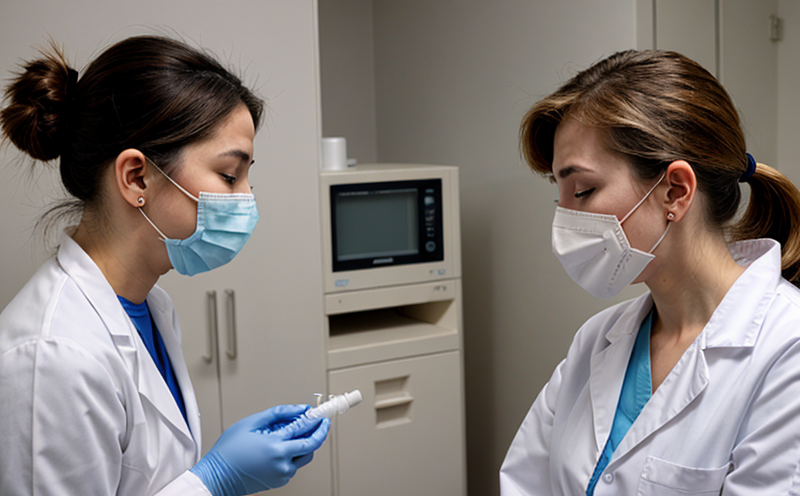B-Cell Function Testing in Animal Immunology
Understanding and assessing B-cell function is crucial in various aspects of animal immunology. The immune system, particularly B-cells, plays a pivotal role in the production of antibodies that protect against pathogens. In the context of clinical and healthcare testing, especially within Allergy & Immunology, accurate evaluation of B-cell function can provide insights into the efficacy of vaccines, the response to allergens, and the overall health of the immune system.
B-cells are essential for mounting an adaptive immune response by producing immunoglobulins (antibodies) that specifically target antigens. The process involves several steps including B-cell activation, proliferation, differentiation into plasma cells, and finally, the secretion of antibodies. This intricate mechanism makes B-cell function testing a critical tool in clinical settings.
The testing methodologies for B-cell function are designed to assess various parameters such as proliferation, immunoglobulin production, and cytokine release. These tests can be performed on blood samples from different animal species, including dogs, cats, rabbits, and mice. The choice of specimen type depends on the specific clinical scenario or research question.
One common method involves culturing B-cells in vitro and exposing them to stimuli such as antigens or mitogens like Concanavalin A (ConA). This allows for the observation of cell proliferation by measuring DNA synthesis. Another approach is to evaluate immunoglobulin production using ELISA assays, which quantify specific antibodies.
For a more comprehensive assessment, cytokine release can be measured using multiplex bead arrays or flow cytometry techniques. These tests provide information on the functional diversity and effector capabilities of B-cells. The results from these tests are then used to diagnose immune deficiencies, monitor therapeutic efficacy, and investigate potential allergic reactions.
Given the complexity of B-cell function testing, it is essential to use validated protocols and standard operating procedures (SOPs). Compliance with international standards such as ISO 15189 ensures that laboratories maintain high-quality practices. Additionally, proficiency in using specialized equipment like flow cytometers and ELISA readers enhances the accuracy and reliability of test results.
The importance of B-cell function testing cannot be overstated, especially in clinical settings where allergies and immunodeficiencies are prevalent. By providing precise measurements of B-cell activity, these tests help healthcare professionals make informed decisions regarding patient care and treatment plans.
Quality and Reliability Assurance
Ensuring the quality and reliability of B-cell function testing is paramount to maintaining high standards in clinical and healthcare laboratories. Laboratories must adhere to stringent quality management systems (QMS) that comply with international regulations such as ISO 17025 for technical competence.
The quality assurance process involves several key components:
- Regular calibration of instruments used in B-cell function testing, including flow cytometers and ELISA readers.
- Participation in proficiency testing programs to validate the accuracy and precision of test results.
- Continuous training for laboratory personnel on the latest techniques and best practices.
- Implementing robust data management systems to ensure traceability and consistency in reporting.
By adhering to these stringent measures, laboratories can confidently provide accurate and reliable test results that are essential for diagnosing and treating various immune-related conditions.
International Acceptance and Recognition
B-cell function testing is widely recognized internationally due to its critical role in clinical diagnostics and research. Laboratories offering this service should ensure their methodologies align with global standards:
- ISO 15189: This international standard sets requirements for quality management systems of medical laboratories, ensuring they provide high-quality services.
- ASTM E2670: This standard provides guidelines for the performance and interpretation of in vitro assays used to assess B-cell function.
- EN ISO 13485: Compliance with this European standard guarantees that medical device manufacturers have robust quality management systems in place, which indirectly supports the reliability of diagnostic tests.
- IEC 62304: This standard is particularly relevant for electronic medical devices used in B-cell function testing, ensuring they meet stringent safety and performance requirements.
By adhering to these international standards, laboratories can ensure their test results are accepted globally, enhancing the confidence of healthcare providers and patients alike.
Competitive Advantage and Market Impact
In today's competitive market, offering B-cell function testing services that meet international standards provides a significant advantage. This service is particularly valuable in sectors dealing with animal health, where understanding immune responses can lead to better treatment strategies.
By providing accurate and reliable test results, laboratories can:
- Increase Market Share: Attract clients seeking high-quality diagnostic services.
- Enhance Reputation: Gain a reputation for excellence in clinical and healthcare testing.
- Promote Research: Support academic institutions and pharmaceutical companies conducting research on immune-related disorders.
The ability to offer comprehensive B-cell function testing services positions laboratories as leaders in their field, driving innovation and improving patient outcomes. In an era where precision medicine is gaining traction, these services are increasingly sought after by healthcare providers worldwide.





